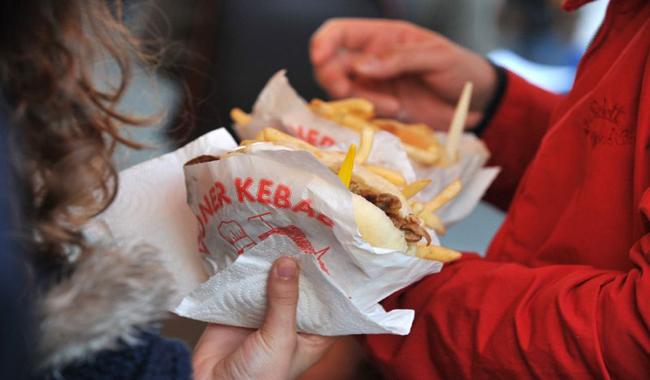WHO urges curbs on online food for children

COPENHAGEN, (DNA): Governments across the world must do more to protect their children from sophisticated online methods currently being used to market unhealthy foods to them, said the World Health Organization (WHO) Europe in a report on Friday.
By using digital analytics and geo location data, companies were defining their audience with great precision, enabling them to target the most vulnerable groups of children, the UN agency warned in the report, urging governments to set a minimum legal age of 16 for advertising foods high in fat, salt or sugar.
Current regulations about advertising such foods often only apply to non-digital media, or only related to young children and not adolescents, the report added.
“In digital media, an extensive, highly complex system of advertising delivery has evolved, through which marketers can access much more specific audiences than in the broadcast era.”
The WHO report said, “For fast food brands, geo location data from mobile devices enable marketers to deliver ads and special offers in real-time when users are in the area.”
nited States, the Children’s Online Privacy Protection Act (COPPA) limits how much data can be collected from young children, and bans “behavioural advertising” directed at children under the age of 13 without parental notice and consent.
But the agency said the law appeared to be largely ineffective since many parents gave their children permission to play games or join certain sites without realising the implications of allowing their children’s data to be collected.
Social media platforms and marketers have themselves reported that social media marketing amplifies the effects of broadcast marketing.
Establishing a minimum legal age, the WHO report said, for such advertising must be accompanied by “effective oversight and enforcement by regulatory agencies.”
“Children’s participation in digital media should not be predicated on receiving digital (high fat, sugar or salt food) advertising, nor should it be predicated on ‘devolving’ consent to parents,” WHO said.
sted that the main aim of the industry’s digital marketing was to “engage children in emotional, entertaining experiences and to encourage them to share these experiences with their friends.”
By using digital analytics and geo location data, companies were defining their audience with great precision, enabling them to target the most vulnerable groups of children, the UN agency warned in the report, urging governments to set a minimum legal age of 16 for advertising foods high in fat, salt or sugar.
Current regulations about advertising such foods often only apply to non-digital media, or only related to young children and not adolescents, the report added.
“In digital media, an extensive, highly complex system of advertising delivery has evolved, through which marketers can access much more specific audiences than in the broadcast era.”
The WHO report said, “For fast food brands, geo location data from mobile devices enable marketers to deliver ads and special offers in real-time when users are in the area.”
nited States, the Children’s Online Privacy Protection Act (COPPA) limits how much data can be collected from young children, and bans “behavioural advertising” directed at children under the age of 13 without parental notice and consent.
By using digital analytics and geo location data, companies were defining their audience with great precision, enabling them to target the most vulnerable groups of children, the UN agency warned in the report, urging governments to set a minimum legal age of 16 for advertising foods high in fat, salt or sugar.
Current regulations about advertising such foods often only apply to non-digital media, or only related to young children and not adolescents, the report added.
“In digital media, an extensive, highly complex system of advertising delivery has evolved, through which marketers can access much more specific audiences than in the broadcast era.”
Related News

Pakistan eyes Thai UHC model to reduce medical expenses
ISLAMABAD, FEB 18 /DNA/ – Rongvudhi Virabutr, Ambassador of Thailand to Pakistan, paid a courtesyRead More

Pakistan assures BAT of policy reforms to curb Illicit tobacco trade
ISLAMABAD, FEB 12 /DNA/ – Federal Minister for Finance and Revenue, Senator Muhammad Aurangzeb, heldRead More


Comments are Closed